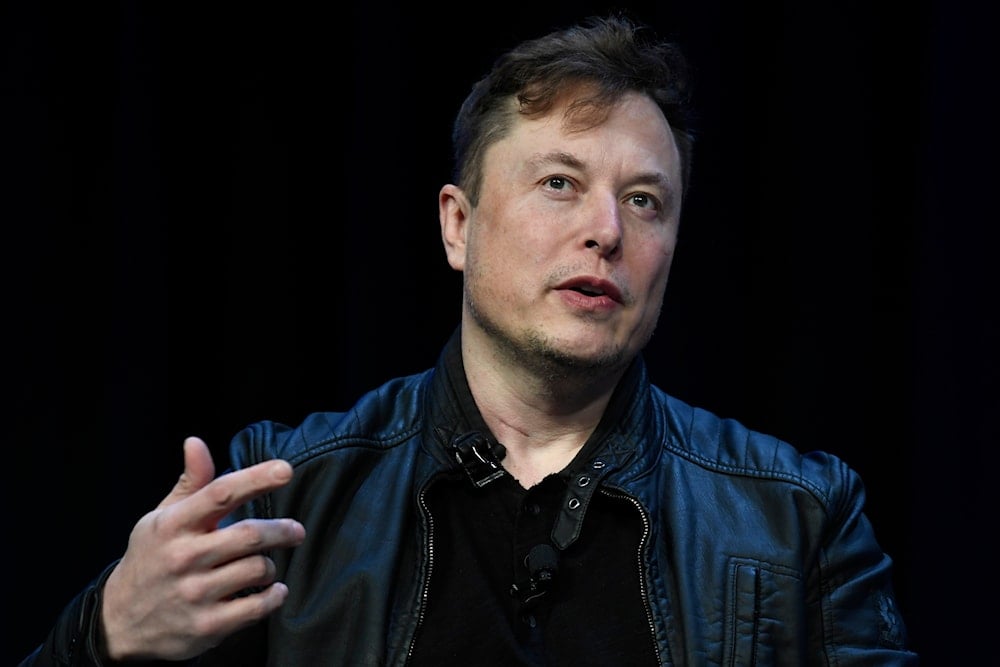US Congress probes Musk’s Starlink over Myanmar scam compounds
Starlink terminals have been spotted at scam centers in Myanmar, raising concerns over the company’s role in enabling fraud and human trafficking.
-

Tesla and SpaceX CEO Elon Musk speaks at the SATELLITE Conference and Exhibition, March 9, 2020, in Washington. (AP)
A bipartisan committee in the US Congress has opened an investigation into Elon Musk’s Starlink satellite internet service, following reports that the company’s technology has been used to provide connectivity to scam compounds in Myanmar. These centers, blamed for defrauding victims across the globe of billions of dollars, have drawn growing international scrutiny.
The probe was prompted by reports revealing that Starlink terminals began appearing on the rooftops of scam compounds in Myanmar earlier this year, just as authorities were claiming to crack down on such criminal operations.
The findings, first reported by Agence France-Presse (AFP), suggest Starlink’s technology may have enabled the scam networks to quickly re-establish communication after the raids.
Starlink’s rapid expansion in Myanmar
Data from the Asia Pacific Network Information Center (APNIC) indicates that Starlink has rapidly become Myanmar’s largest internet provider in a span of just three months, despite the country’s ongoing internal conflict and limited official approval for foreign internet services.
Satellite imagery and on-the-ground reporting identified compounds inside KK Park, a notorious hub for human trafficking and online fraud in the border town of Myawaddy, as sites equipped with multiple Starlink receivers.
Despite repeated inquiries, SpaceX, Starlink’s parent company, has not responded to AFP’s requests for comment.
Regional crackdown, human trafficking concerns
In February, authorities from China, Thailand, and Myanmar claimed to have compelled pro-junta militias guarding the scam compounds to shut down their operations.
The coordinated campaign reportedly led to the release of around 7,000 people, most of them Chinese nationals, who had been detained and forced to work in abusive conditions.
The United Nations has described these criminal networks as relying on “forced labour and human trafficking.” Many of those freed told investigators they had been beaten, deprived of rest, and forced to spend long hours scamming victims worldwide through phone calls, social media, and online platforms.
US lawmakers demand accountability
Senator Maggie Hassan, the senior Democrat on the congressional committee, urged Musk to suspend Starlink’s services to the fraudulent operations.
“While most people have probably noticed the increasing number of scam texts, calls, and emails, they may not know that transnational criminals halfway across the world may be perpetrating these scams by using Starlink internet access,” she said.
Hassan had written to Musk in July, submitting 11 specific questions about Starlink’s potential role in enabling the scams. The committee, which initiated its probe that same month, also holds the authority to summon Musk for testimony.
Critics and broader impact
Erin West, a former California prosecutor and head of the anti-scam initiative Operation Shamrock, condemned the situation, saying, “It is abhorrent that an American company is enabling this to happen.”
She added that she had already warned Starlink in July 2024 that crime syndicates, allegedly many of them Chinese, were exploiting its network, but had received no response.
The US Treasury Department claimed that Americans remain among the main victims of Southeast Asia-based scam rings, suffering an estimated $10 billion in losses last year, an alarming 66% rise compared to the previous year.
A 2023 UN report estimated that as many as 120,000 people may be “forced to carry out online scams” in Myanmar’s scam compounds. Meanwhile, recent AFP drone footage and Planet Labs satellite imagery show continued expansion inside the heavily fortified complexes around Myawaddy, with new buildings visibly equipped with Starlink antennas, raising further questions about the company’s role and oversight.

 4 Min Read
4 Min Read








